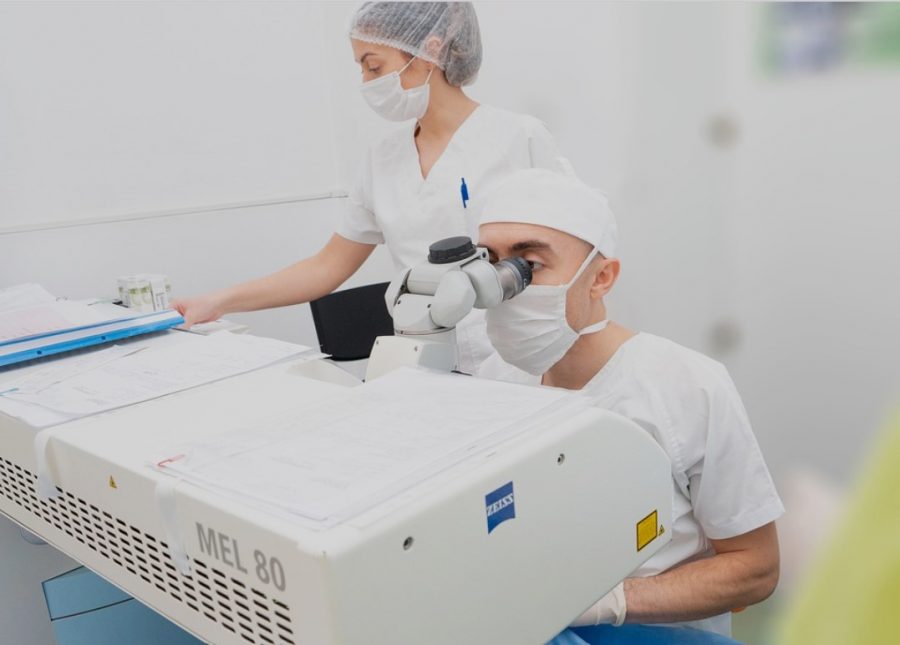Although cataract surgery procedures continue to advance, it can still be unsettling to have surgery performed on one of your body’s most important parts. To help you gain some peace of mind, one of the best things that you can do is to ask questions of your doctor. By gathering information, you’ll be able to embrace the surgery and look forward to the life-changing results you’ll receive.

How Long Will the Surgery Take?
In general, cataract surgeries are much faster than they used to be. In fact, the time it takes you to recover from the anesthesia will typically be longer than the time it takes for the procedure to be completed. Unless there are extenuating circumstances, you can expect the surgery to be completed in ten minutes or less. Talk with your doctor about any risk factors you may have to determine if your surgery might take longer.
What is Recovery Like?
Recovery from cataract surgery is typically fairly simple. You may be given an ocular steroid treatment to help prevent swelling and to speed up the healing process. While full healing of the incisions may take a few weeks, you should be able to drive and resume most normal activities again within a few days.
Are There Multiple Lens Types?
There are three main lens types that are implanted during cataract surgeries: monofocal, multifocal, and accommodative. Each lens type works best for different vision types and individual needs. Therefore, it’s best to discuss with your doctor what your post-surgery goals are so that they can help you choose the best lens. In addition, your insurance coverage may also play a role in which type of lens you receive.
How Much Experience Does My Surgeon Have?
Although cataract surgery is a safe procedure, it’s still nice to know how much experience your surgeon has. This is a perfectly acceptable question to ask to help give yourself a little more peace of mind. In most cases, you’ll find that your surgeon has performed thousands of surgeries, meaning that you’ll be in good hands for your operation.
When it comes to your upcoming surgery, it’s likely that your family has many of the same questions that you do. Therefore, as you learn new information, it’s a good idea to share this information with your loved ones to help put their minds at ease. This will allow everyone to look forward to surgery day for all the good it will bring instead of dreading it because of a lack of information.
